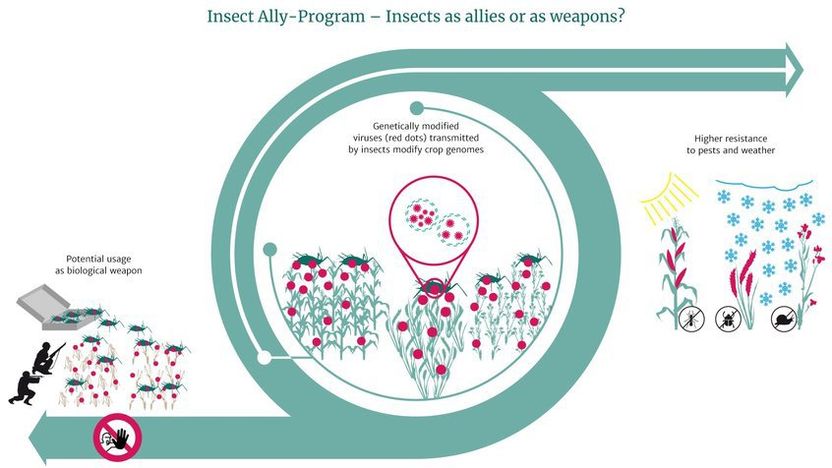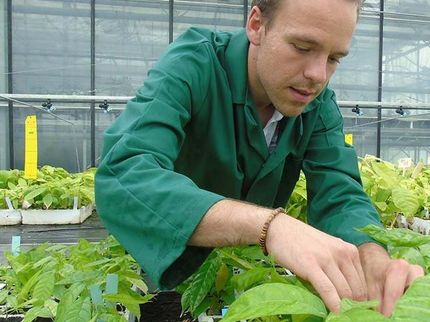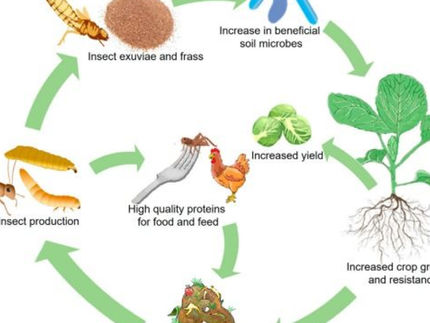A step towards biological warfare with insects?
Advertisement
A research program of the US Department of Defense Research Agency could easily be misused to develop biological weapons.

A step towards biological warfare with insects?
MPG/D- Duneka
While the frightening effect of chemical weapons is present in public perception through the armed conflicts of the present, biological weapons and their effects have largely disappeared from public view. A research program by the U.S. Department of Defense's research agency is now raising fears that research into biological warfare could be misused. In the project called Insect Allies ("Allied Insects"), insects are to serve as a means of transport for plant viruses and transfer them to agricultural crops. The viruses can modify the genetic material of the affected plants by means of so-called genome meditation. In this way, plants such as maize or tomatoes that are already growing in the fields can be genetically modified quickly and on a large scale. Scientists from the Max Planck Institute for Evolutionary Biology in Plön and the Universities of Freiburg and Montpellier point out in the journal Science that such a system can be manipulated relatively easily and used as a biological weapon.
Genome meditation opens up undreamt-of possibilities for altering the genome of crops. In this way, plants can, for example, become more productive or less sensitive to pests and drought. However, such interventions in the genetic material can only be carried out in the laboratory - once the plants grow in the field, it is too late to do so. In the event of unexpected drought or pest infestation, farmers have to wait for new seeds for the next harvest season.
At the end of 2016, the DARPA (Defense Advanced Research Projects Agency) - an agency of the US Department of Defense that funds research projects for the Department - launched a public call for tenders for a four-year research programme. It is funding projects worth a total of 27 million US dollars with the aim of releasing genetically modified viruses that can alter the genetic makeup of crops in the field. In mid-2017, the first of three consortia of several American research institutions announced their participation in the DARPA program.
According to press releases from the institutions selected for the programme, the scientists involved are investigating whether they can transfer the viruses to maize and tomatoes using grasshoppers, aphids and white flies, which are part of the plant lice. Until the end of the programme, the technology will be used on a large scale in greenhouses.
In public statements, DARPA points out that the findings from the Insect Allies programme will be used primarily in agriculture, for example to protect crops from drought, frost, flooding, pesticides or diseases. However, in many countries the approval procedures for genetically modified organisms for the use of such technology would have to be comprehensively changed. The use of such methods would also massively affect farmers, seed producers and, not least, the public. "Despite isolated press releases from DARPA and the consortia involved in the programme, there has so far been virtually no public discussion about the sense and possible consequences of this technology. Even among experts, the programme is largely unknown," said Guy Reeves from the Max Planck Institute for Evolutionary Biology in Plön. According to the scientists from Plön, Freiburg and Montpellier, a broad social, scientific and legal debate is urgently needed. In their opinion, there are no plausible reasons for using insects to spread genetic material.
The researchers are particularly critical of the use of insects to spread genetic material, as the findings from the Insect Allies programme can be modified relatively easily and thus adapted for biological warfare. "For example, genes could be rendered non-functional - which is usually easier than optimizing them. This means that the process does not even have to be further developed; it is sufficient to simplify it in order to be able to use it as a weapon," said Reeves. In view of these objections, the DARPA programme could arouse suspicion that it is not aimed at peaceful purposes, as required by the B Weapons Convention. This, in turn, could result in other countries developing their own weapons in this area.
For an assessment under international law, it is crucial whether a biological research programme serves only peaceful purposes. The Convention on the Prohibition of Biological Weapons, for example, prohibits under all circumstances the development, production or acquisition of biological weapons by more than 180 States Parties.
Original publication
Agricultural research, or a new bioweapon system? RG. Reeves, S. Voeneky, D, Caetano-Anolles, F. Beck, C. Boete Science; 5 October, 2018


























































